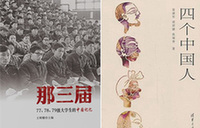Looking to the past to understand the future
By Kelly Chung Dawson in New York ( China Daily ) Updated: 2014-01-21 09:59:48Contrary to the popular historical narrative that China's exposure to the West in the 1800s hastened a slew of problems for an inward-looking Qing Dynasty (1644-1911), historian Odd Arne Westad argues that the Qing was not only eager to expand outward but benefited immeasurably from Western creativity and knowledge.
|
|
In his new book Restless Empire: China and the World Since 1750,which was named winner of the 2013Asia Society Bernard Schwartz Book Award for its contribution to advancing the understanding of contemporary Asia, Westad traces China's development through its interactions with the out side world from a Chinese perspective.
"There's very little in this book about a supposedly inward-looking China, or an isolated China that is self-satisfied about its past successes, but instead the China I see back then and today is a China that is open to change and always has been, "Westad says.
"China today is a hybrid that's been created as the result of both domestic and foreign influences, to a higher degree than almost any other country. In fact, one of the only other countries that compares is the United States, and more should be made of that comparison, in terms of the restlessness and willingness to embrace change seen in both countries," he explains.
Although he doesn't downplay the wrongdoings inflicted by various Western imperial powers, he does argue that the Western-designated concession districts in urban cities gave the Chinese the opportunity to create "new identities for themselves as workers, traders, shopkeepers, or part of the intelligentsia, in ways that would not have been open to them had Qing power ... stayed intact".
Of equal importance to the foreign diplomats and leaders that came into contact with China were the businesspeople, missionaries, teachers and advisers that were vital in China's modernization, he writes. Among the forces that transformed China's thinking about the world and its own society were communism, capitalism and imperialism.
Westad sets forth three ideas that remain central to the Chinese character: Justice, and the belief that China has been treated poorly; the crucial role of rules and rituals; and a deep sense of centrality that places China at the crux of its surroundings.
|
|
|
|
|
|
|
|























 Raymond Zhou:
Raymond Zhou: Pauline D Loh:
Pauline D Loh: Hot Pot
Hot Pot Eco China
Eco China China Dream
China Dream China Face
China Face





